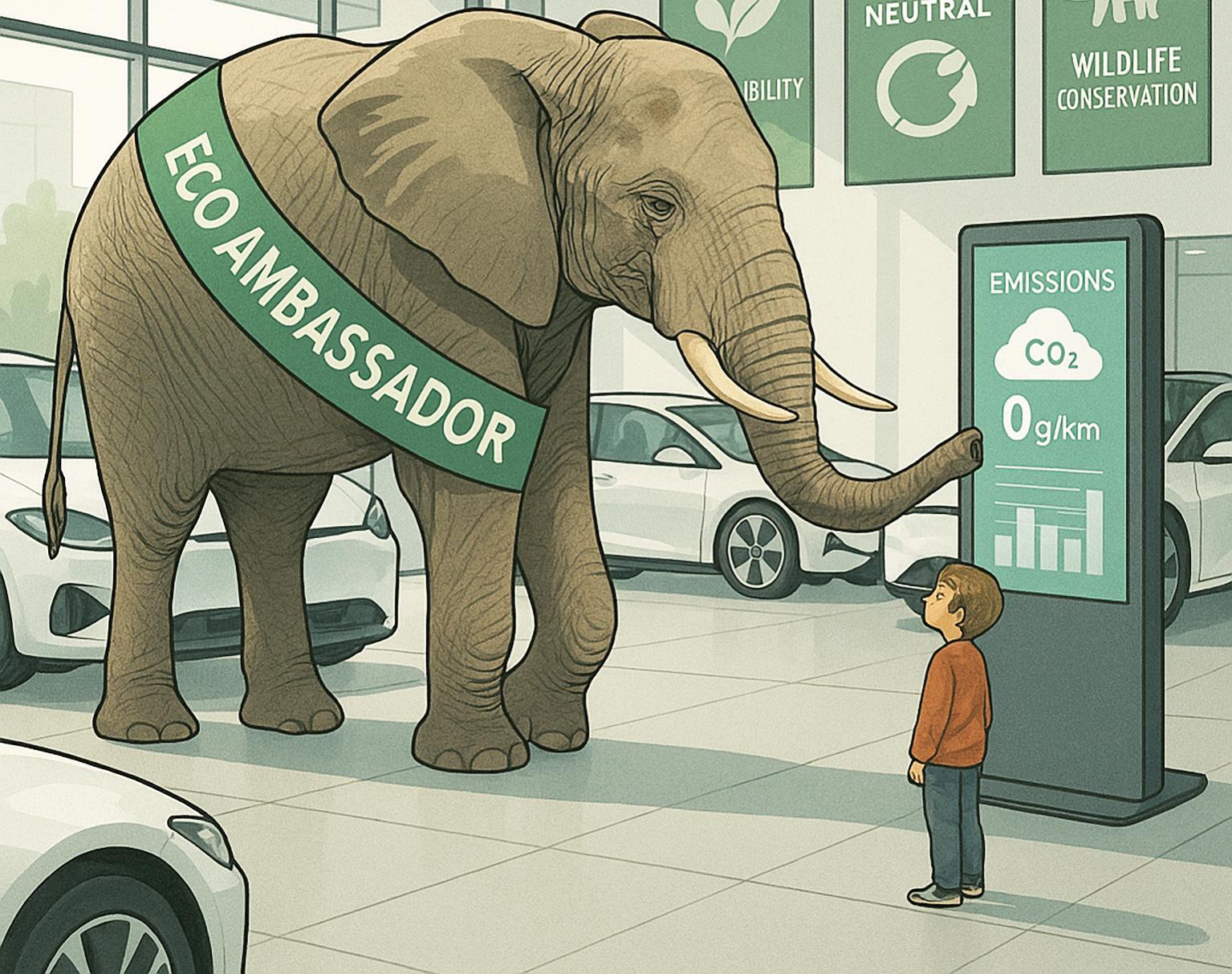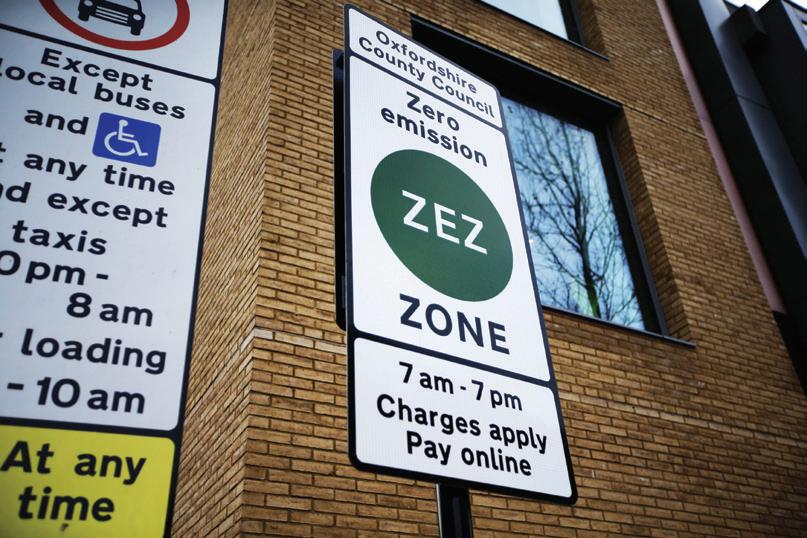
5 minute read
The elephant in the showroom…
The elephant in the showroom…



The author takes a hard look at whether automakers are genuinely addressing the ethical quandaries associated with car manufacturing, or exhibiting selective blindness
The most obvious example of corporate hoodwinkery in the face of climate change is of course greenwashing, where deceptive and misleading claims are made about a products environmental credentials to gain a competitive advantage. Yet for every high profile VW emissions scandal, there are multiple lesser known and more recent examples.
BMW and MG both had their knuckles rapped by the UK Advertising Standards Authority just last year, for marketing plug-in hybrid ranges as 'zero emission' across their lifecycle when and in truth, they busily create tailpipe emissions when not driven on their electric motors. Toyota came under similar criticism for describing their hybrids as 'self-charging', as if the electricity in their batteries were conjured from thin air, rather than fuel burnt in petrol engines.
Some have referred to this gap between what companies say, and what companies do, as the ‘green mirage’, because their publicly perceived eco-credentials are in fact just an illusion.
And what of vegan leather car seat covers and trims, the latest eco-friendly must-have in town? Volvo is set to achieve 25% in terms of recycled and bio based interior trims this year, using materials such as bio-attributed PVC synthesised using ethylene derived from renewable sources rather than fossil fuels, which significantly lowers the carbon footprint of this part of production.
So far so good, except that good PR does not an ecologist make. The resultant product is unfortunately equally as non-biodegradable as conventional PVC made using petrochemical derived ethylene, and therefore just as likely to end its days in landfill, potentially releasing microplastics and chemicals into the environment for hundreds of years.
Then we have the global cost of progress. Innovation and technological advancements, common within the automotive industry in recent years, undoubtedly provide opportunity. But they also contribute toward income inequality, environmental harm and social disruption.
Whilst the development of Electric Vehicle technology offers numerous possibilities, research, development and production costs have risen exponentially, leading to sharp increases in retail price, thereby hurting customers. Increased automation has in turn led to heavy job losses, whilst the environmental impact of mining the precious minerals required to build the batteries, semi-conductors and other specialised components, often in regions with poor workplace protections, is well documented.
Such factors only begin to scratch at the surface with many other equally important issues flying under the public radar. Take for example our friends in the EU and their attempts to persuade manufacturers to adopt a 'Circularity Vehicle Passport' – a comprehensive digital record providing details about a products design, manufacture, composition and environmental impact to facilitate transparency, traceability and sustainable practices throughout its lifecycle.
The goal was to require the sector to reduce the huge environmental footprint associated with car manufacturing but in the event, the Council of Europe attracted heavy criticism from a range of environmental NGOs including the European Environmental Bureau and Environmental Action Germany, for significantly watering down its provisions and failing to address the problem effectively.
Back in the UK, the general trend points toward a steady decline in outdoor air pollution and harmful emissions, thanks to improved standards and the
expansion of albeit politically contentious low and ultra-low emission zones, as well as increased uptake for EV's.
However, this is only half the story, as illustrated by a recent report delivered to the government by the Air Quality Expert Group highlighting both regional and socioeconomic disparities when it comes to exposure to vehicle-related air contamination. In particular the fact that communities close to major roads, or living in economically disadvantaged areas, face far greater exposure to pollution, so significantly worse health outcomes.
In conclusion, the car industry is accelerating ever faster toward the laudable and, from its perspective, profitable goal of electrification, the model serving up a simple, easy to digest green narrative into which the public can easily be persuaded to buy.
Yet dig a little deeper and there remains an obvious and urgent need to address multiple unsustainable and in some cases arguably dishonest business practices, often from major players in the industry who really ought to know better.
This is a business with no shortage of bright minds and bold ideas, yet true innovation requires courage, and not just in the design of ever more sophisticated cars. Surely the future is about how we hope to live as a society, and the development of equitable and sustainable systems of transportation that work for everyone, not ignoring the large beast in the corner shaking its head in disapproval.
Joel Leigh is the motoring correspondent of City Solicitor and a Partner at Howard Kennedy LLP










